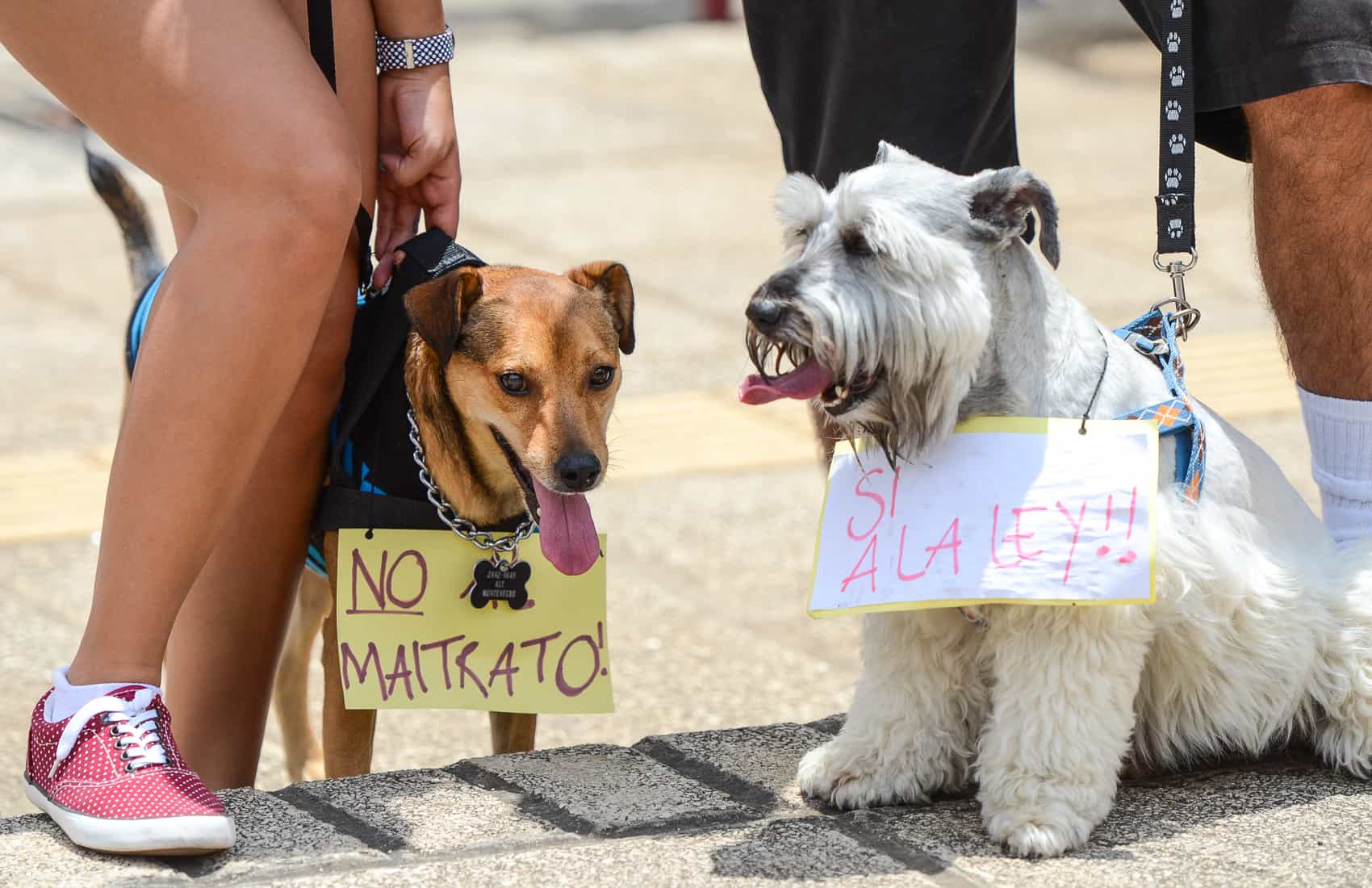A majority consisting of 46 lawmakers approved Bill #18,625 or the “Animal Welfare Bill,” in the first round of debate late last week. The initiative sets harsher punishments, including prison time, for abusing or killing an animal.
Lawmakers from all parties have held lengthy negotiations in recent weeks to agree on the terms for the approval of the bill. Most of these conversations focused on agreeing on wording that would satisfy both animal rights’ groups and the farmers and other sectors that have opposed the initiative for years.
Those negotiations included an agreement for lawmakers who opposed the bill to refrain from voting against it during last Thursday’s session.
The approved draft amends the wording of previous versions of the bill that lawmakers approved, but that the Constitutional Chamber of the Supreme Court, or Sala IV, ruled unconstitutional in October and then again in February.
What is an animal?
Most of the changes in the draft approved Thursday affected the wording various articles describing fines and prison sentences for those found guilty of harming or killing animals.
The justices of the Sala IV found fault in their previous rulings with various articles proposing prison sentences of up to three years, saying they “violate constitutional principles of reasonableness and proportionality.”
Furthermore, they claimed that the bill’s definition of animals also violated the principles of reason and proportionality because of the broad range of animals included.
The newly approved draft as been changed to include lower sanctions for those found guilty of harming or killing “domestic and domesticated animals.” The bill describes domestic animals as those that, “because of their evolutionary and behavioral characteristics, coexist with the human being.” These include, for example, dogs, cats and other pets, but also farm animals such as cows, horses, sheep and pigs, among others.
The definition of domesticated animals establishes that these are those that “have changed their wild condition through the efforts or actions of human beings.”
Lawmakers excluded wild animals altogether, arguing that they are already protected by the Wild Life Act.
Exempted
The approved legislation also exempts from sanctions all those productive activities such as farming, fishing or aquaculture; zootechnical or veterinary activities, or any other action conducted with sanitary or reproductive purposes, or for hygiene controls.
It also exempts euthanasia, research, or actions taken to protect crops, productive lands, public health or veterinary health.
Many animal rights’ groups were hoping the bill would ban certain traditional Tico shows such as bullfights or horse parades. The approved bill, however, allows the use of animals in public or private shows, “as long as they comply with the provisions of the Health Ministry and the Agriculture and Livestock Ministry.”
Legislative President Gonzalo Ramírez said he will submit the approved bill for publication in the official newspaper La Gaceta so that interested groups and organizations can read it and submit their concerns.
Ramírez said legislators hope to hold the second and definitive round of debate and vote 10 days after the bill’s publication in La Gaceta, in order to allow feedback from any interested parties.
Sanctions
The approved bill provides prison sentences ranging from three months to two years for those found guilty of killing a domestic or a domesticated animal.
The sentence will range between three months and one year for those who “directly or through another person, harm a domestic or domesticated animal.” The same sanction applies for those who organize and conduct animal fights.
The new legislation stipulates monetary fines ranging from a quarter to a half base salary, or ₡106,000 to ₡212,000 ($184-368) for those who mistreat, neglect or abandon animals. The same fine applies to those who breed or train animals for fighting, or those who violate regulations on animal experimentation or breach basic conditions for the welfare of an animal.
Among other basic conditions, owners are obliged to pick up a pet’s droppings in a public space, and to provide them with appropriate living conditions.
Sectors satisfied
https://www.facebook.com/luisguillermosolisr/videos/1679085888787590/
President Luis Guillermo Solís, currently on an official tour of Europe, said in a written response and through his social media profiles that he is fully satisfied with the approval of the bill, one of his campaign promises.
“I join the national celebration over the approval of these measures that were long overdue. My only regret is that we were not able to approve them sooner in order to protect the animals, our younger brothers, as Saint Francis of Assisi called them. This is a historic moment for Costa Rica,” Solís said.
Marcela Guerrero, a lawmaker from the ruling Citizen Action Party and one of the biggest supporters of the bill, congratulated representatives of all parties who supported the agreement. She said “[the approval] shows legislators’ maturity to agree and make decisions.”
Even the Libertarian Movement’s Otto Guevara, one of the primary opponents of the bill who led the group of legislators who filed appeals before the Constitutional Court, said he was satisfied with the new draft’s approval.
Guevara noted on his Facebook profile that his fellow lawmakers agreed to modify the drafting of the bill, “which had serious incompatibilities with the Constitution.”






